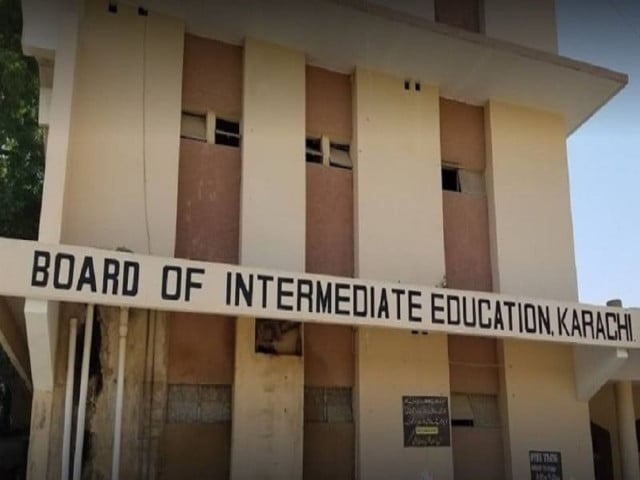BIEK Chairman Removed Amid Examination Results Controversy
The Chairman of the Board of Intermediate Education Karachi (BIEK), Ameer Qadri, has been dismissed following widespread criticism of the intermediate examination results. The decision, approved by Sindh Chief Minister Syed Murad Ali Shah, who oversees the education portfolio, was formalized through an official notification.
In the interim, Sharf Ali, Chairman of the Board of Secondary Education Karachi (BSEK), has been assigned the additional charge of BIEK. Meanwhile, Qadri has been directed to provide an explanation for an unauthorized foreign trip.
The controversy erupted after many students expressed dissatisfaction with the pre-engineering and pre-medical examination results. A significant number of students failed multiple subjects, leading to the submission of thousands of scrutiny requests. Students alleged deliberate manipulation of results, with some who had previously scored 80–85% in matriculation receiving below 50% in their intermediate examinations.
READ MORE: Pakistan Hit Hardest by Government-Imposed Internet Shutdowns: Report
The issue sparked protests, as students claimed the flawed results jeopardized their academic and career aspirations. This situation is reminiscent of last year’s scandal when numerous students were unjustly declared “fail.” A subsequent investigation by a three-member committee exposed serious irregularities in the results, particularly in English, Biology, Chemistry, and Physics. Eight officials of the Karachi Intermediate Board, including former chairmen Dr. Saeedudin and Naseem Memon, were implicated in tampering with results. The Sindh government had ordered the anti-corruption department to file cases against those responsible.
This year’s incident has further undermined public trust in the Karachi Intermediate Board. Students and parents are demanding greater transparency and accountability in the examination process. While Ameer Qadri’s dismissal is seen as a step in the right direction, many believe that comprehensive systemic reforms are essential to restore confidence in the board’s operations.




